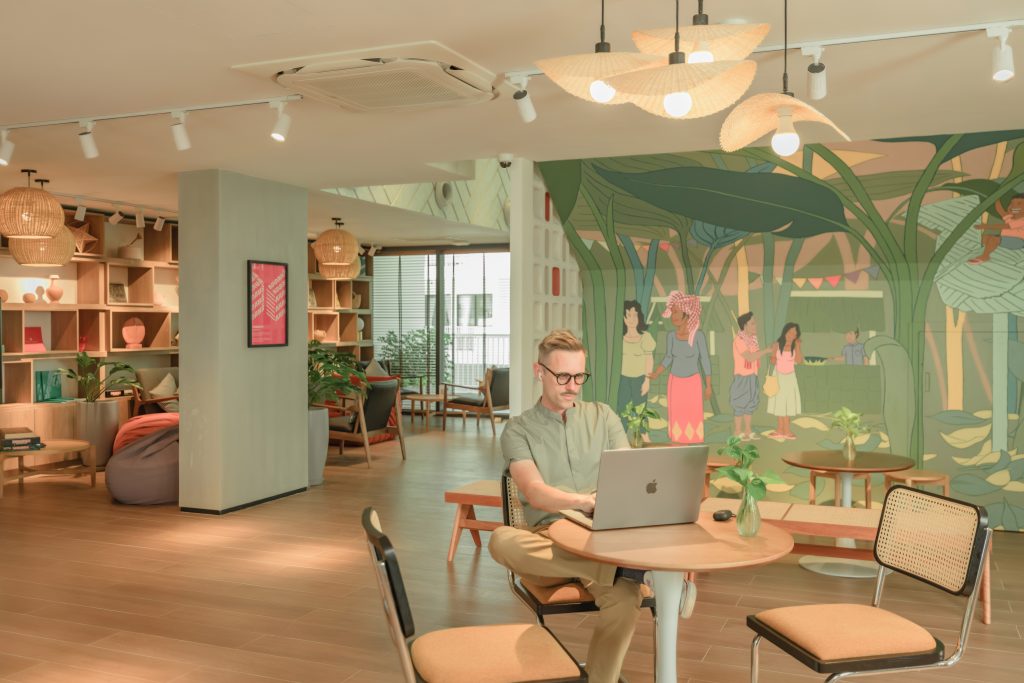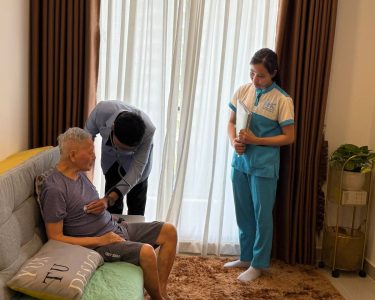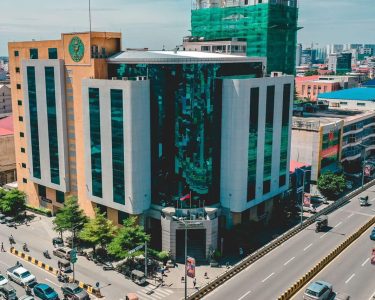Keolakena Kin
As Cambodia adjusts to the post-pandemic era, a new class of workers is redefining how and where work happens. Digital nomads—professionals who use technology to work remotely from anywhere—are emerging as a driving force in the nation’s fast-growing digital economy.
The COVID-19 pandemic transformed social interactions and daily routines, ushering in a non–face-to-face way of life that has since become a long-term reality. This shift gave rise to what many now call the “new normal,” where industries and businesses were compelled to adopt digital tools and online platforms to remain relevant and resilient.
Cambodia’s digital economy has since expanded at remarkable speed. Cashless payments through platforms such as ABA and Canadia Bank have become a part of everyday life, while online food delivery services like Grab and Wow Now, along with e-commerce platforms such as Alibaba and Taobao, have changed how people shop and dine.
This digital transformation has also reshaped the job market. Remote work opportunities continue to grow, particularly in areas such as digital marketing, content creation, and technology startups. Meanwhile, cafés, libraries, and co-working spaces have evolved into flexible offices, supporting a new generation of professionals untethered from traditional workplaces.
Digital nomads typically work remotely from cafés, co-working spaces, rental homes, or even recreational vehicles—carrying only portable devices and a strong internet connection. Their lifestyle is defined by mobility and adaptability, allowing them to move freely between cities or countries while maintaining productivity.
With this global trend gaining momentum, Cambodia is well-positioned to attract digital nomads seeking a base in Southeast Asia. Siem Reap, in particular, offers a unique mix of cultural heritage, affordable living, and creative energy that could make it an ideal digital nomad hub—complementing Phnom Penh’s role as the country’s business center.
By embracing this opportunity, Cambodia could not only diversify its economy but also nurture an ecosystem that blends innovation, culture, and global connectivity—shaping the next chapter of its digital future.

Why Should Siem Reap Be the Focus?
Siem Reap is already a globally recognized tourist destination, attracting millions of tourists annually to its ancient temples and cultural landmarks. Beyond its historical appeal, Siem Reap offers a low cost of living, a warm and welcoming community, and a laid-back lifestyle that appeals to digital nomads. The overall standard of living is also calmer and safer, with a closer connection to the local community compared to Phnom Penh. Additionally, as more digital nomads cluster there, the location’s value increases via network effects, resulting in increasing networking opportunities, shared resources, greater cultural, academic, and intellectual vibrancy, and better infrastructure.
Looking to the other ASEAN nations, they have actively built their digital nomad ecosystems to compete for this growing demographic, including Vietnam with Ho Chi Minh City and Da Nang, Malaysia with George Town (Penang), and Melaka, and Indonesia with Bali, especially Canggu and Ubud.
Cambodia may become a major participant in the regional remote work scene by establishing Siem Reap as a hub for digital nomads and capitalizing on its unique cultural attractions and cost.
Why Should This Issue Be Addressed?
Digital nomads are very self-reliant; often acting as early adopters and active consumers. As a leading demographic, they can drive economic growth by increasing demand for premium products and innovative services, influencing market trends, and supporting local entrepreneurship.
Numerous studies have highlighted that the inflow of talents and the mobility of highly skilled individuals to the country can foster an innovation and entrepreneurship ecosystem. Switzerland, Canada, the United States, and Japan, for instance, are in a fierce competition to produce the best talent in the world. They do this by investing in education, research, technology, and inclusive policies that help them attract and retain the best talent in the world and establish themselves as vibrant centers of innovation, economic growth, and cultural diversity.
Additionally, digital nomadism is a new form of tourist mobility, and many countries in the world, such as Indonesia, Vietnam, Portugal, and Spain, have made efforts to attract digital nomads by leveraging local resources and enacting policies friendly to them.
Furthermore, Phnom Penh city is a metropolis; more and more people, particularly adults, migrate to the city to seek a better opportunity and leave the elderly behind in the provinces, causing the city to be very congested, cacophonous, and crowded, and resulting in depopulation in rural areas.
Finally, digital nomadism is the interplay between cultural phenomena, economic activity, and technological approaches. Technically, transforming Siem Reap into a hub friendly for digital nomads could be a part of a strategy to position Cambodia as a leading technology and innovation hub, a leisure, cultural, academic, and intellectual destination in the region.
Therefore, in response to the new normal trend and the new lifestyle and consumption trends, Cambodia should react smartly and innovate to develop readiness and competitiveness.
Why Cambodia Lags Behind in Attracting Digital Nomads Compared to ASEAN Peers?
In Cambodia, there are currently no regulations or policies specifically targeting digital nomads or aimed at creating an ecosystem to attract or support them. This is primarily because digital nomadism is a relatively new phenomenon, and Cambodia has not fully recognized it.
The efforts of Cambodia have been made to focus on promoting well-known places and conventional infrastructure, for instance, the First Tourism Vocational School. This traditional tourism strategy targets regular visitors rather than digital nomads
Particularly in Phnom Penh, around 15 co-working spaces are catering mostly to startups and entrepreneurs, indicating some foundational infrastructure. However, in Siem Reap, there are a few noticeable co-working spaces, such as Siem Reap House and Biolab Cafe & Office.
Despite its potential with its rich and unique cultural heritage, it lacks co-working spaces, long-term accommodation with affordable prices, and community hubs that cater specifically to digital nomads. The existing tourism infrastructure targets short-term tourists with limited facilities or services designed for those seeking long-term stays.
Last but not least, there is currently no visa support for digital nomads in Cambodia, while other countries in ASEAN, such as Singapore, Vietnam, Indonesia, the Philippines, and Malaysia, have been actively competing to attract digital nomads.
The “Golden Visa” program in Indonesia, for instance, allows qualified foreigners to remain in the nation for a maximum of ten years. Malaysia on the other hand has taken a particularly active approach to luring digital talent by initiating the De Rantau programme, which started in October 2022.
A startup visa, sometimes referred to as an investment visa, has also been introduced by Vietnam for foreigners who want to start or invest in local businesses. Additionally, it permits their families to be sponsored for visas, allowing for longer stays and easier assimilation.

Pathways to Transform Cambodia into a Premier Destination for Digital Nomads
To capitalize on this emerging travel trend, the government and relevant stakeholders should proactively develop the necessary infrastructure and supportive policies to attract digital nomads.
Infrastructure should be developed to attract digital nomads, including building modern and affordable co-working spaces with reliable high-speed internet. Besides financial benefits to digital nomads, it also fosters a higher level of social cohesion and supportive networks. Moreover, affordable accommodation for long-term stays is essential for Siem Reap to be redesigned because most of the resorts and hotels are primarily designed to serve short-term visitors and normal tourists.
Besides developing infrastructure, promoting lifestyle and community engagement is important. There is a valuable opportunity to diversify tourism offerings by developing programs specifically catered for digital nomads, such as hosting job-seeking events, clubs, groups, and courses for sports, outdoor activities, yoga, meditation, cooking, arts and crafts, music, books, language learning, and playgroups that promote relaxation and leisure, which can enhance their experience and encourage longer stays.
Finally, to draw in remote workers and international talent, Cambodia should consider creating visa programs for digital nomads. By offering specific visa alternatives designed to meet the requirements of remote workers and digital nomads, Cambodia could attract more talent.
Conclusion
An influx of digital nomads offers these benefits, including increasing demands and generating income for locals, creating jobs, strengthening social cohesion, and encouraging an innovative environment and cross-cultural interaction in Siem Reap.
However, there are drawbacks as well, including higher rents, gentrification, standardization, and so forth, which are seen in other countries like Portugal. Therefore, the promotion of affordable housing and sustainable growth should be prioritized in Cambodia to ensure that long-term benefits and inclusive development are achieved.
Keolakena Kin is a Junior Research Fellow at the Future Forum, a public policy think tank based in Phnom Penh. This article was written as part of the Future Forum’s Inclusive Policy Fellowship, an endeavor supported by the Australian Government through The Asia Foundation’s Ponlok Chomnes II: Data and Dialogue for Development in Cambodia.





